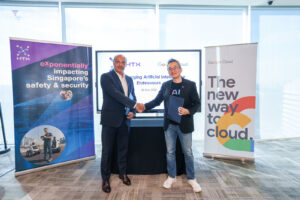
More than two-thirds of Singaporean businesses are scaling back their artificial intelligence (AI) investment, despite 90 per cent of them viewing AI as key to achieving success, according to research by software firm Qlik.
The surprising finding comes from a survey of 4,200 C-level executives and AI decision makers worldwide, which also highlighted significant hurdles—including trust issues, data governance challenges, resource constraints, and a lack of skills—that are stalling AI projects in the city-state.
While acknowledging the challenges, Singapore’s business leaders recognise AI’s potential. Some 90 per cent of Singapore’s senior decision-makers believe AI is essential or key to achieving organisational success, which include reaching strategic goals and increasing profits.
However, the reality is that many AI projects are scrapped before completion, rarely going beyond the planning stage.
According to the Qlik study released this week, 34 per cent of Singaporean business respondents have over 50 AI projects in the scoping or planning stages, higher than the global average of 11 per cent.
Another 11 per cent have more than 50 projects progress to planning or beyond, only to pause or cancel them entirely, compared to the global average of 8 per cent.
While many AI projects are stalled, AI is still making some inroads into the Singapore workplace. In another study by collaboration software company Slack, 52 per cent of workers in Singapore use AI in their roles, and 53 per cent are optimistic about AI taking over certain tasks.
However, barriers to adoption persist. Slack’s research highlights a lack of training from employers, uncertainty and discomfort surrounding AI usage. About 45 per cent of Singaporean employees hesitate to tell their employers they use AI for fear of being viewed as dishonest, inept, or lazy.
A question of trust
Trust is a key issue in AI adoption both globally and in Singapore. The Qlik study found that 42 per cent of AI decision-makers worldwide report a lack of confidence in the technology among less senior employees, while 37 per cent citing distrust from senior management. Even external stakeholders pose a challenge, with 21 per cent indicating that their clients are skeptical about AI.
In Singapore, this lack of trust has a clear impact—61 per cent of the respondents say it significantly reduces AI investment in their business. This issue is more pronounced among businesses in Singapore, with 74 per cent of respondents saying that trust issues are holding back their AI adoption.
Addressing these concerns begins with better communication and knowledge sharing across a business and its customers can help to increase that trust and subsequent investment, with 74 per cent of respondents planning to promote the benefits of AI more within their organisation and to their customers.
Besides trust issues, Singapore faces the same challenges as the rest of the world. The key challenges are data governance challenges (26 per cent), budget constraints (28 per cent), a lack of trusted data for AI to work with (26 per cent), the lack of expertise to create and implement AI (19 per cent) and implement AI after it has been produced (23 per cent), are other factors contributing to Singapore’s adoption of AI.
Ready-made AI solutions
According to the Qlik poll, most AI decision makers (79 per cent) think that “ready-made” AI solutions are a desirable starting point for further AI development because of the difficulties in developing AI projects.
Despite this, 72 per cent of AI initiatives in Singapore are being built internally, and the majority of C-level executives (67 per cent) think that these projects are superior to pre-made solutions.
The key to successful AI adoption is to have a clear AI strategy, said James Fisher, chief strategy officer at Qlik, who highlighted the importance of a structured approach.
“The first step to creating an AI strategy is to identify a clear use case, with defined goals and measures of success, and use this to identify the skills, resources and data needed to support it at scale,” he noted.
“In doing so, you start to build trust and win management buy-in to help you succeed,” he added.






